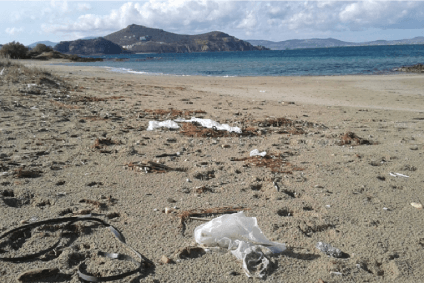
The report – ‘Microplastic Policies for the Government,’ published by the All-Party Parliamentary Group on Microplastics (APPG), outlines a number of holistic recommendations, designed to eliminate the release of microplastics fibres from clothing into British waters.
According to the report, textiles are estimated to be the largest source of synthetic fibres in our seas, with microplastics shedding into the water system every time garments are washed. Microfibres from textiles enter rivers via discharges from wastewater treatment plants, and are then transported to the ocean.

Discover B2B Marketing That Performs
Combine business intelligence and editorial excellence to reach engaged professionals across 36 leading media platforms.
Citing Napper and Thompson data (2016), it is thought that a single 6kg domestic wash has the potential to release as many as 700,000 fibres.
A number of factors can affect the extent to which microfibres shed from clothing, according to APPG, including the raw materials used to create a garment; the fibre type in use; the yarn in use; the fabric in use; the colour used; the garments’ finish; the clothing care practices used by the consumer, and the age or condition of the garment.
The report sets out a number of key recommendations including the fitting of microfibre filters in all new domestic and commercial washing machines from 2025 and the appointment of a designated ‘Minister for Plastics Pollution’ who would have a clear remit for the control and prevention of plastic pollution.
In France, all new washing machines will be required to be fitted with a microfibre filter by 2025. They have been found to block 90% of microfibres from entering the wastewater system.

US Tariffs are shifting - will you react or anticipate?
Don’t let policy changes catch you off guard. Stay proactive with real-time data and expert analysis.
By GlobalData“This would also help create consumer awareness around the harms of microplastics in the environment,” APPG says in its report. “However, reducing microplastic pollution must be approached holistically with a number of different policies which, when implemented together, would positively contribute to reducing microplastic pollution in the UK.”
Policy recommendations:
- Emphasise the role of education and public awareness
- Appoint a designated ‘Minister of Plastics Pollution’ (MOPP)
- Extended Producer Responsibility for Textiles from 2023
- Introduce legislation and standards which require microfibre filters to be fitted into all new domestic and commercial washing machines from 2025
- Creation of UK microfibre recycling technology
- Create an Environmental Quality Standard for plastics
Formed in September 2020, the All-Party Parliamentary Group on Microplastics works to raise awareness of the effect microplastics have on the environment. The group works cross-party with interested stakeholders to discuss potential policy solutions to the problem of microplastics and microfibres.
Click here to view the full report.





